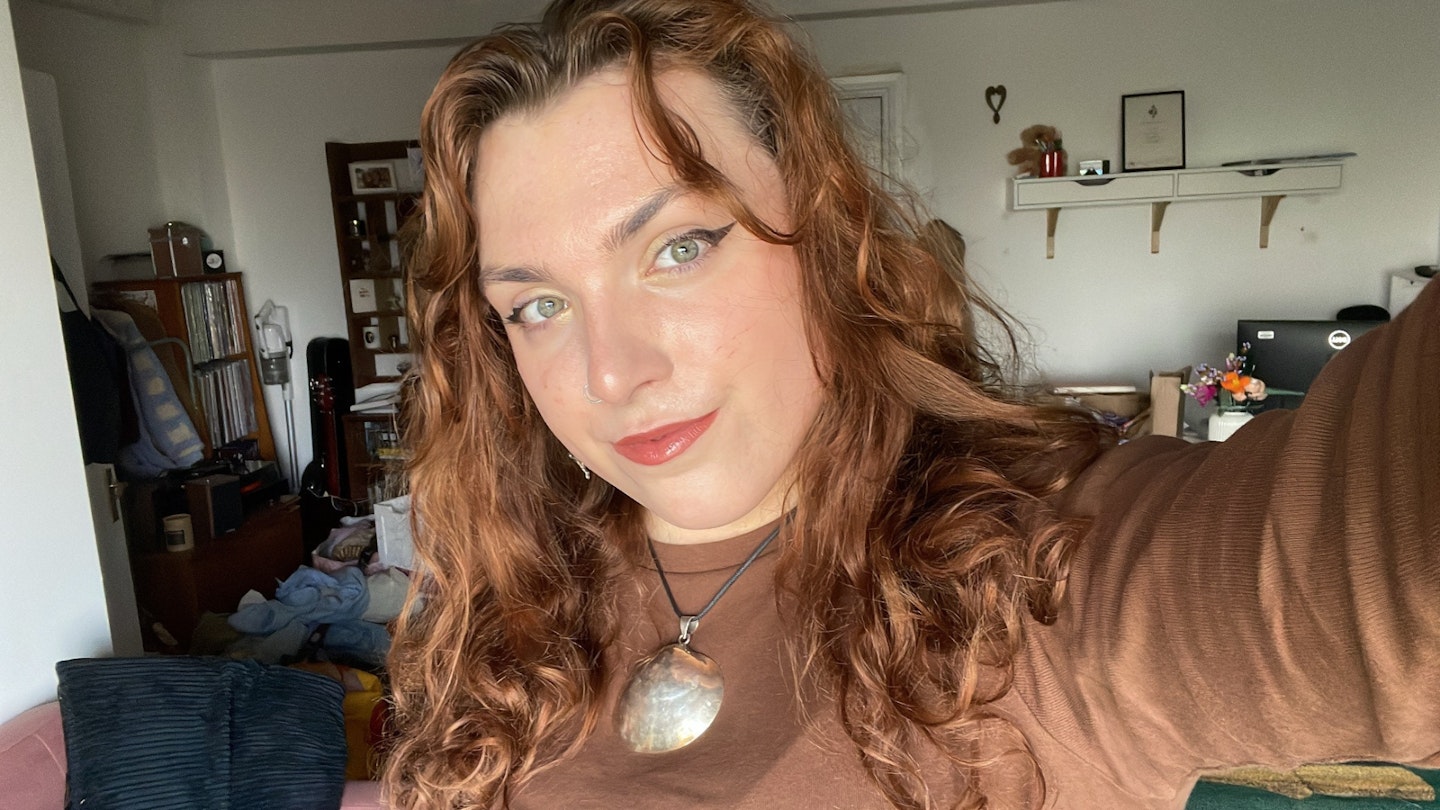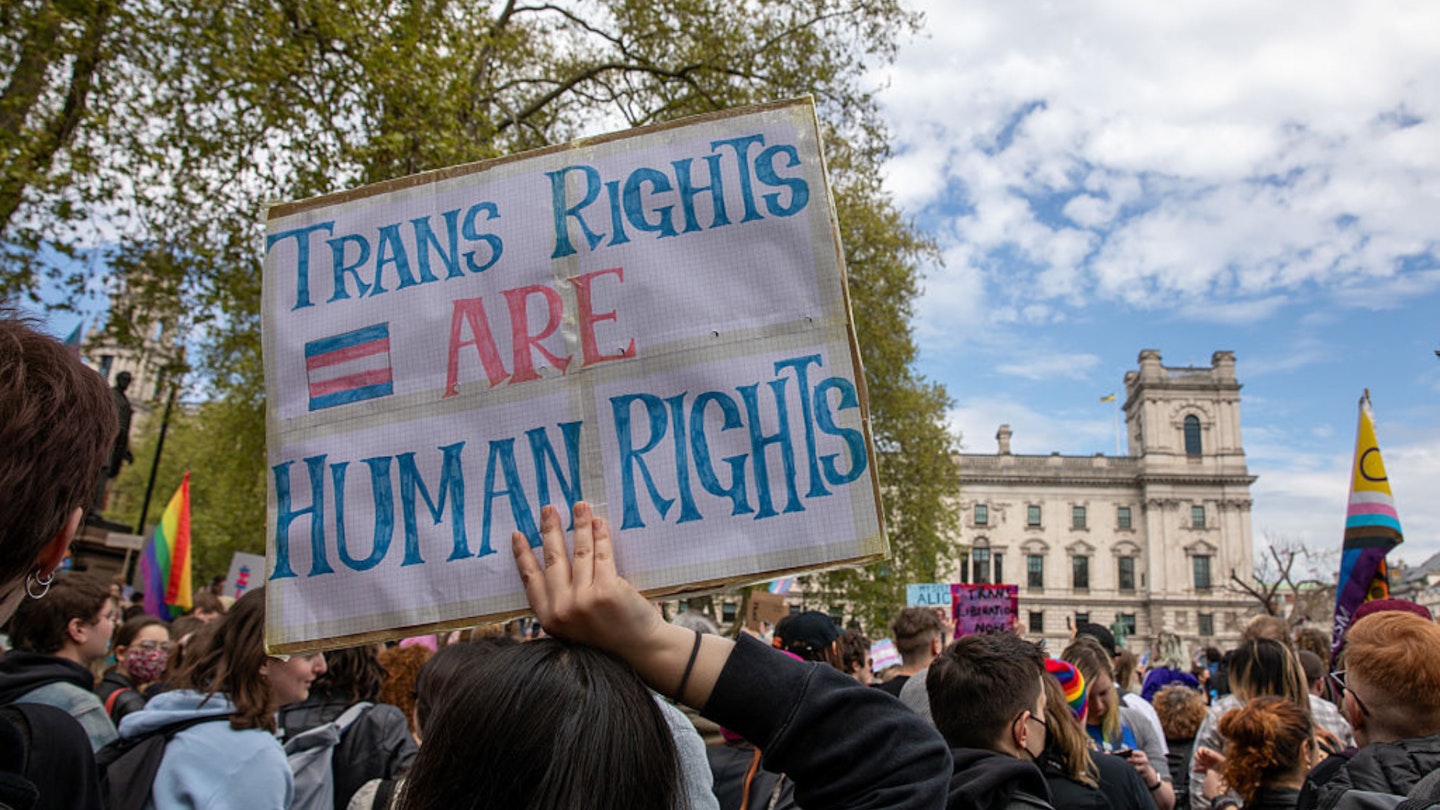When the Supreme Court ruled that a woman is defined by biological sex in mid April, I wasn't totally surprised. That's the saddest part, I think. Put simply, this means that the legal definition of a woman, according to the Equality Act 2010, doesn't include transgender women. Women like me.
Since 2018, I have been existing as a trans person in the UK (I knew who I really was long before that, like so many of us trans folks do). I choose to say existing because ‘living’ isn’t quite my experience: a full transition has been inhibited by an anti-trans presence that I feel has infiltrated the UK. I wasn't given the chance to thrive at university, where transphobia was tolerated amongst faculty.
After the ruling, I felt a mix of resignation, exhaustion, and fury. However, despite the rage and despair rippling through my community, I also feel pride. I'm proud to be part of a community that keeps its head up high, keeps surviving, and keeps creating and loving, even in a world that seems to rejects us.
They can change the laws. They can argue semantics. But they cannot change who we are.

What does the UK Supreme Court’s ruling mean for trans women like me?
Under the Equality Act 2010, the UK Supreme Court ruled that sex means biological sex, not gender identity. This means that trans women are not legally considered to be women (and trans men are not considered to be men). This is for the purpose of single-sex protections. In practice, this means that trans people are no longer able to use the toilets and changing rooms that correlate to their gender identity.
This ruling altered legal interpretation, which means organisations can exclude people like me from women’s shelters or hospital wards. This is true even if I had a Gender Recognition Certificate, which is the legal way to be recognised as an acquired gender under UK law. The ruling means I could even be strip-searched by a male police officer.
TransActual UK, an organisation advocating for the rights and wellbeing of trans and non-binary people in the UK, called it 'a bigoted attempt to segregate trans people in public spaces,' on its Instagram, calling it 'almost certainly unlawful.'
My community already treads lightly when accessing certain gendered spaces for fear of being harassed or discriminated against, but now things feel even more dangerous for us. I feel this is a major rollback of trans rights in the UK, and Prime Minister Keir Starmer's statement of agreement on the ruling felt like a further blow. Especially because it marked a significant shift from his previous position in 2022 when he stated, ‘trans women are women’, announcing soon after that the Labour party would ‘modernise, simplify and reform’ the gender recognition process.
This is especially disheartening given that Keir Starmer met with Esther Ghey, the mother of the murdered trans teen Brianna Ghey. And last year condemned former Prime Minister Rishi Sunak over his transphobic jibe during Prime Minister's Question Time (Rishi joked about Starmer's position on trans people, on a day when Esther Ghey was in Parliament). Sadly, however, I'm not surprised by this spinelessness shown by Starmer.
I feel that the anti-trans movement has been led by some high-profile individuals using their platform and considerable financial resources to spread a message of intolerance.
The most frustrating part of the UK’s Supreme Court ruling was that it didn’t consult the people who wrote the Gender Recognition Act in the first place, let alone transgender people themselves.
So, why make this much noise about less than 1% of the UK population, as the author (and my personal hero) Juno Dawson wrote in an amazing piece for Grazia last year? In it, she discussed how the gatekeeping of our identities is borne out of the ‘insidious assumption that trans people are delusional or likely to "change our minds", which dehumanises us. She's right – if we are treated as illegitimate, as though we are errors, fakes and threats, this then justifies our exclusion and discrimination. It encourages moral panic, erases our authenticity, and pathologises our very existence as a mental illness. With this, it becomes easier to deny us healthcare, housing, safety, jobs and sets a terrifying legal precedent.
Members of the British Medical Association have also voted to show their opposition to the ruling, with some describing it as ‘reductive, trans and intersex-exclusionary and biologically nonsensical’.
What does Pride mean to me?
Pride is more than a parade (which is the fun part) and a flag: it's a lifeline. It's how I survive. Yes, I'm stubborn and determined – I think I had to be growing up – because lots of us in the trans community have had to hide parts of ourselves for so long.

Now, I am done with hiding. I want people to notice my softness, my femininity, my truth. I am choosing joy in this country – my home – which I feel is trying to make me feel ashamed of who I am. But this is not just my fight: Pride is all about community. Throughout my transition, I have felt like a pawn in a culture war orchestrated by people who couldn't possibly understand my existence. I am not a threat. We're here, we're real, and we matter.
Every day, I am reminded by transgender people of the past, who fought harder than I’ve ever had to, and who did so with bigger obstacles in front of them.
What can you do to help the trans community right now?
To my community I would say this: It's OK to switch off if you need. Protect your peace. To our allies, I would say this: step up when you can and take time to educate others, online or in person. Donate to campaigns. Sign petitions. Make a noise. We all know this is wrong.
Protest
• What the Trans? has collated a list of upcoming anti-ruling protests, if you feel like you want to join any of the events happening across the country.
• Find out who your MP is and email them. Let them know how awful this ruling is.
Donate
• Bridgerton actress Nicola Coughlan has helped raise more than £100,000 for a trans rights charity, Not a Phase, which was founded by Danielle St James. You can donate through this link, which will fund a range of services and initiatives for trans adults in the UK.
• The Good Law Projects fundraiser is raising money to create 'a fighting fund to look at both domestic and international cases, all the way up to the European Court of Human Rights.'
Shop
• Connor Ives' Protect the Dolls' T-shirt, recently worn by Pedro Pascal, makes an important statement. The T-shirt is still on sale and all proceeds go to Trans Lifeline, a trans-led US- based charity. Tilda Swinton also proudly posted herself wearing one of these tees.
• TransActual UK has teamed up with LUSH to create the Liberation Bath Bomb, with 75% of profits being donated to organisations advocating for trans rights.
Read
•Trans voices are important – read our books and our articles.
• Here are some other UK-based trans writers I recommend checking out: Shon Faye, Alison Rumfitt, Paris Lees, Juno Dawson, Travis Alabanza, Charlie Craggs, Freddy McConnell and Logan Brown.
Piper-Ivy Huxley (she/her) is a contributor to Grazia and many other Bauer titles. When she’s not obsessing over the latest home decor or beauty trends, she’s doomscrolling somewhere or listening to a podcast.
